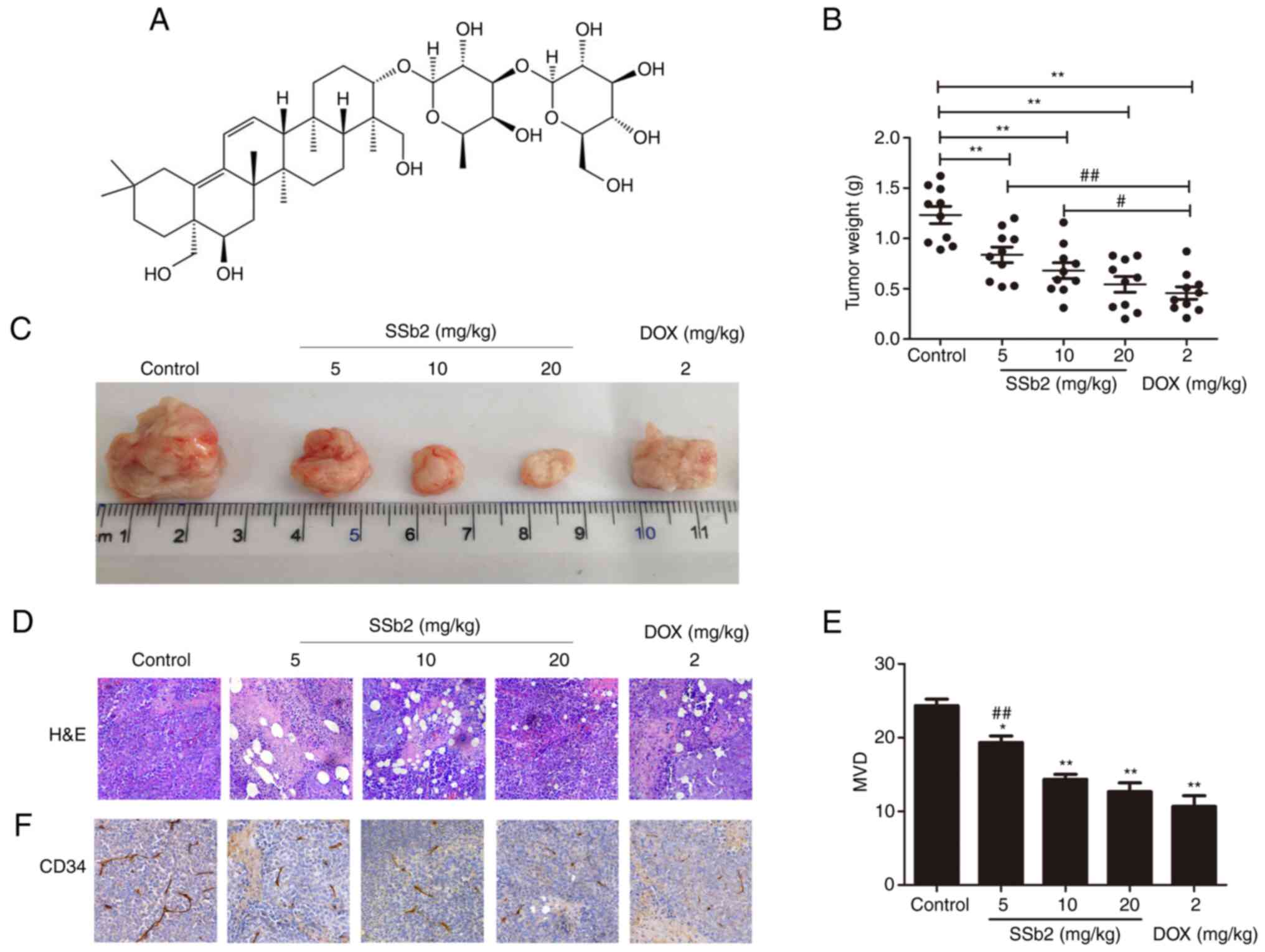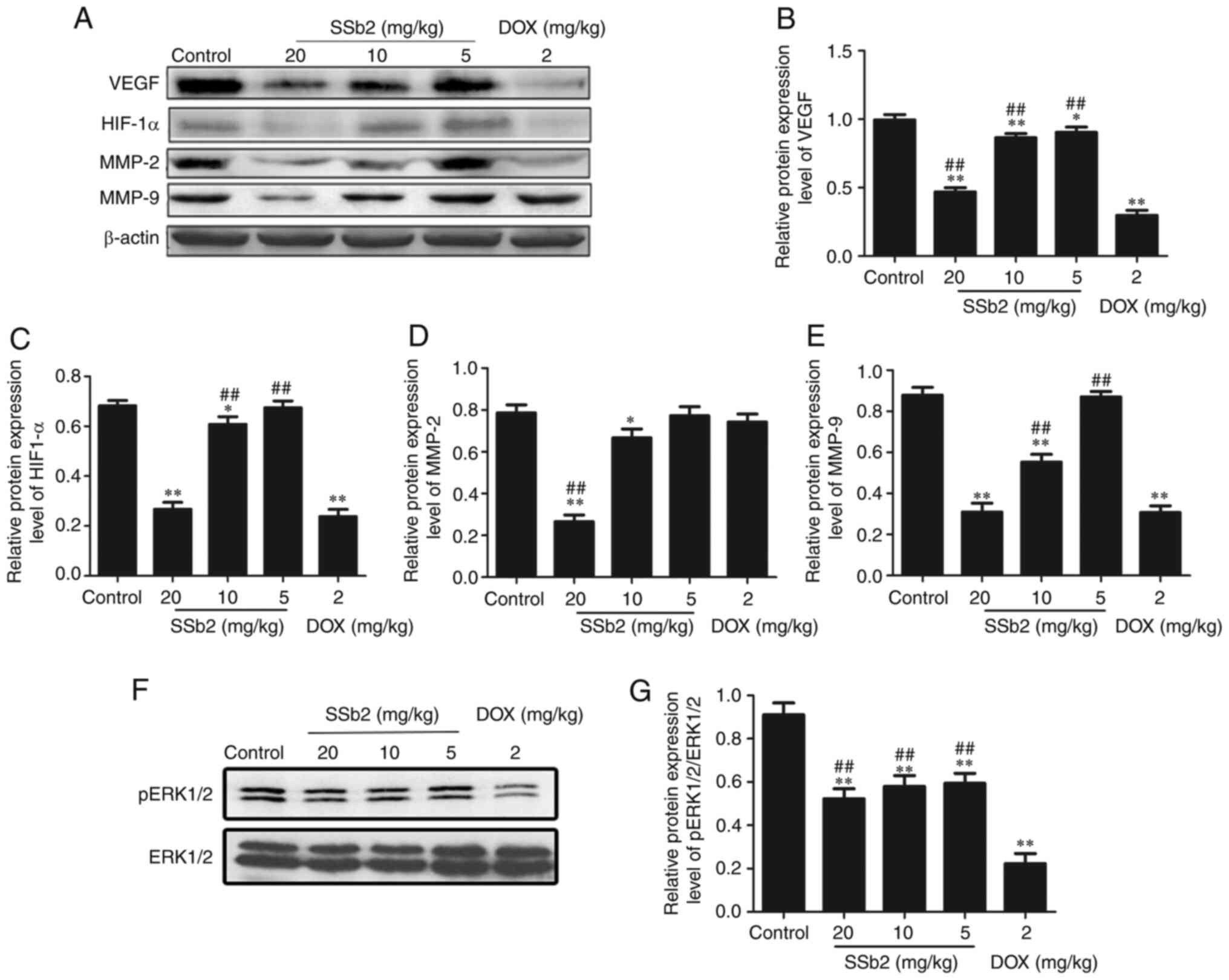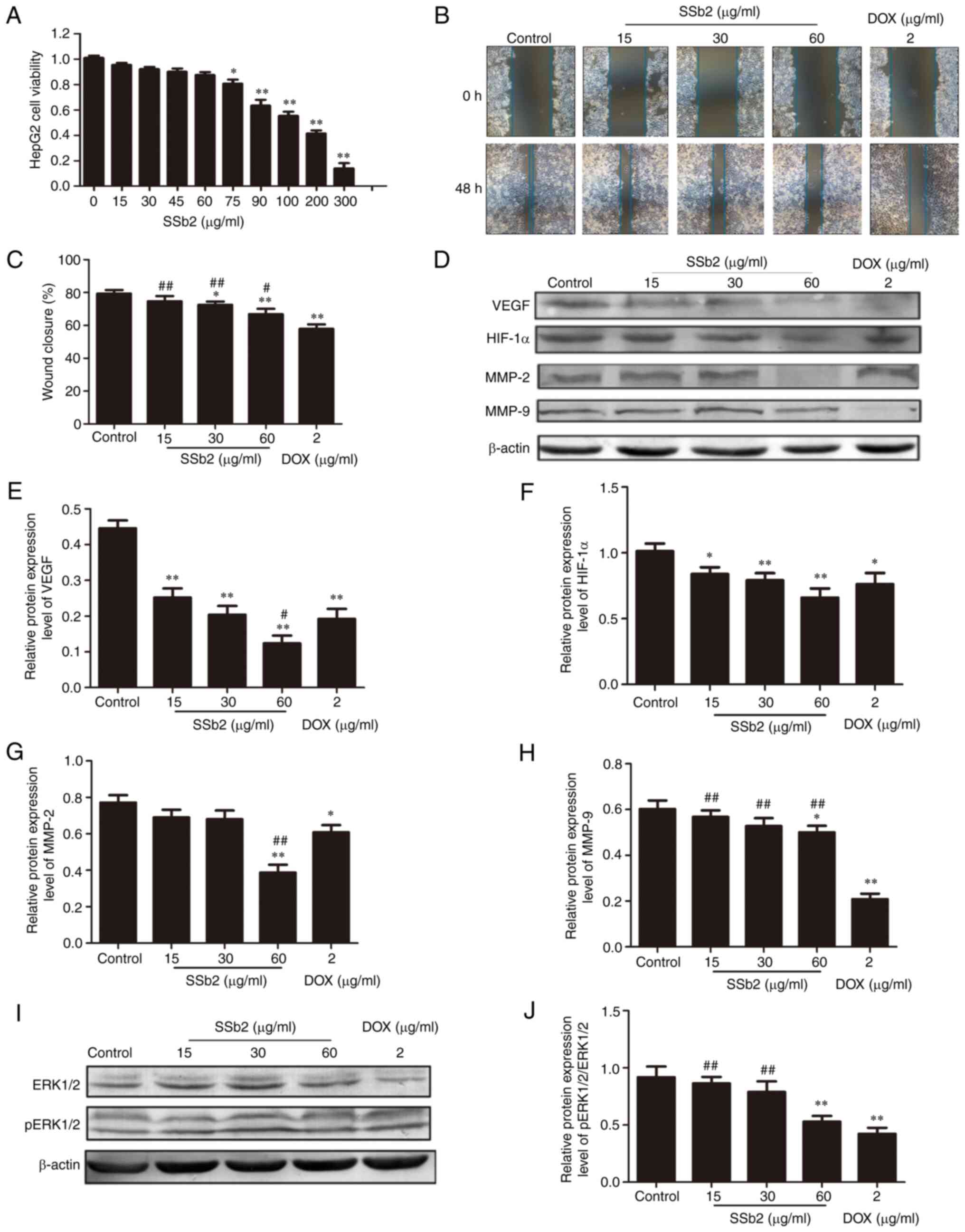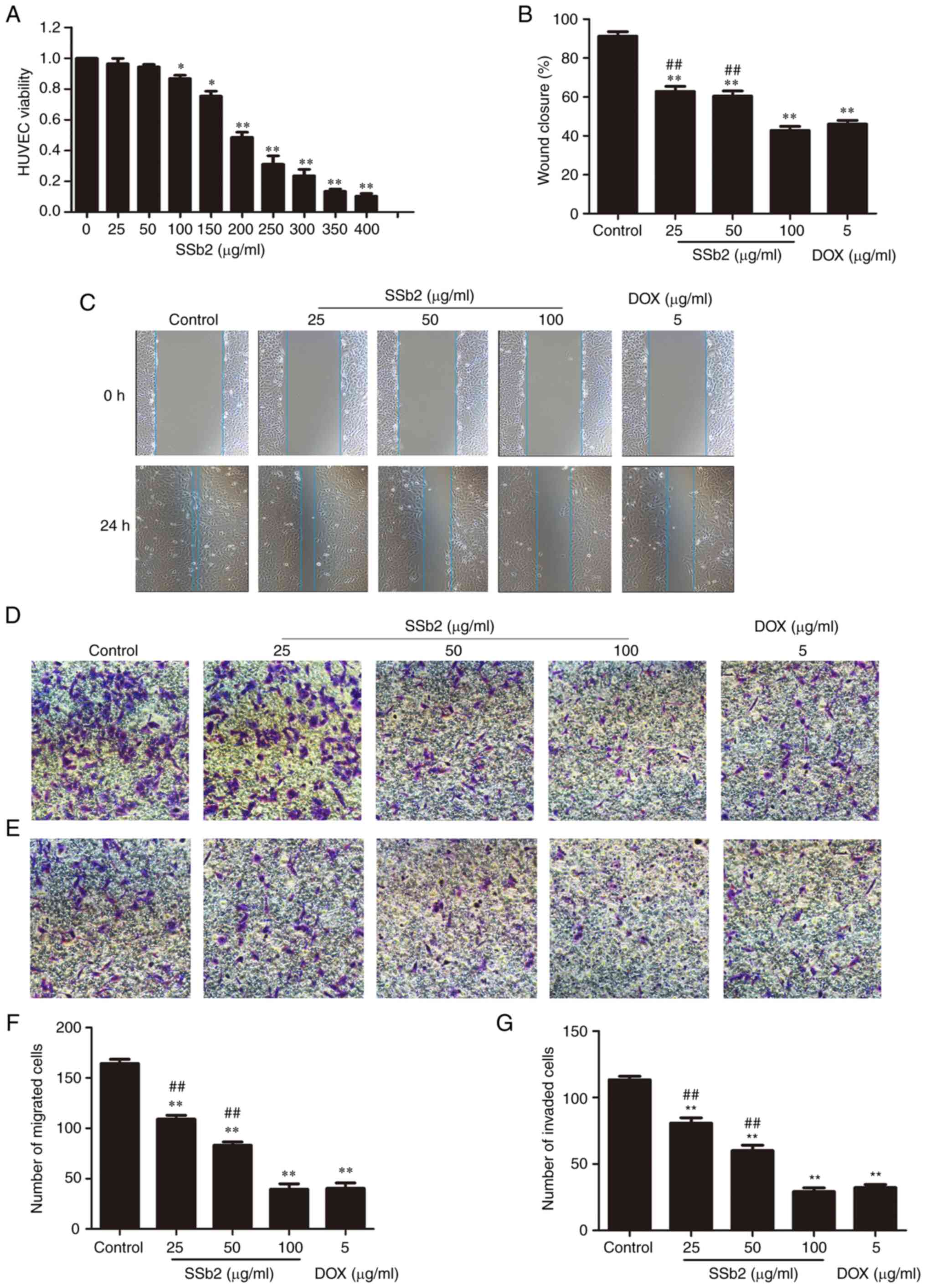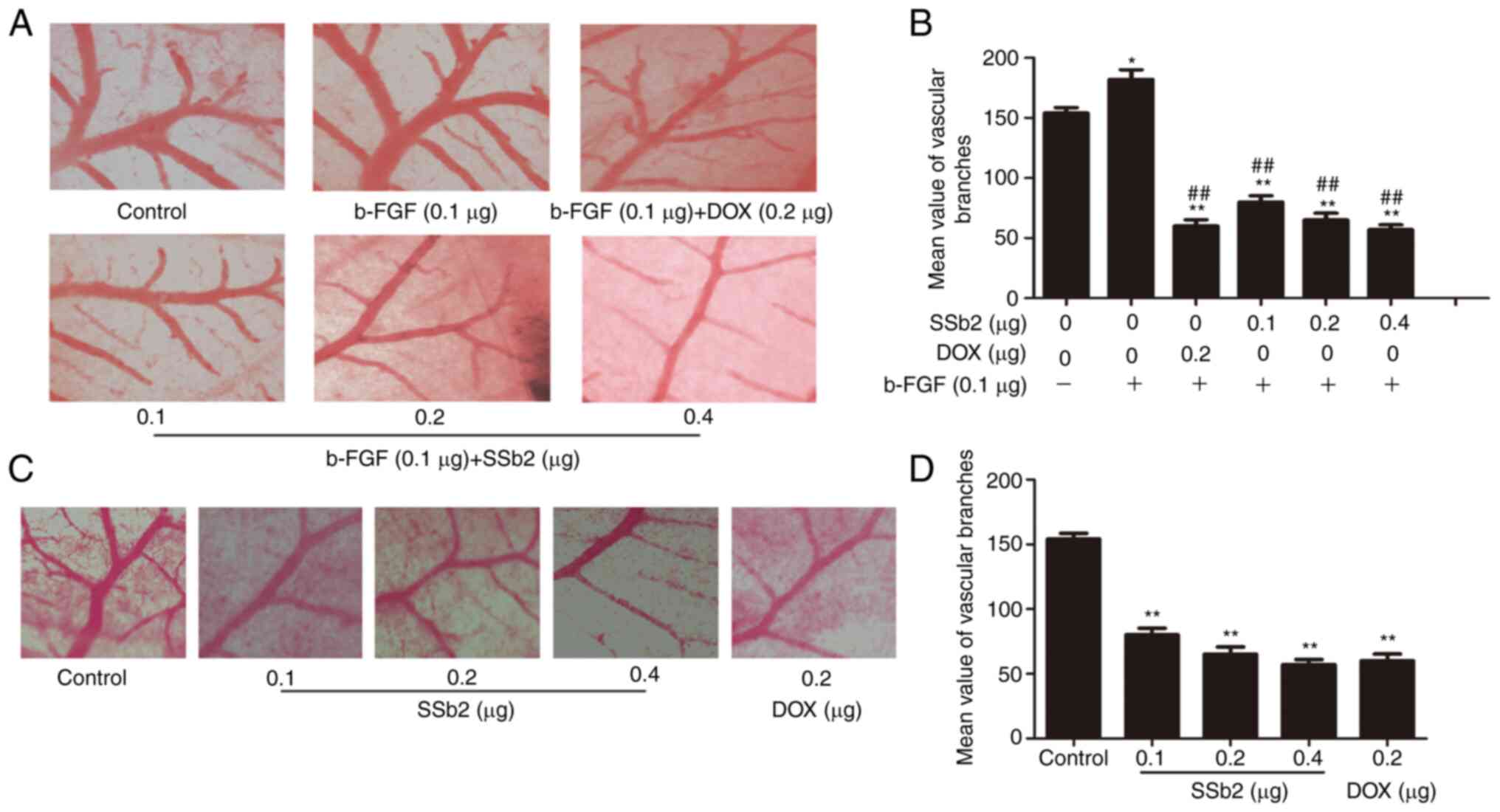|
1
|
Caines A, Selim R and Salgia R: The
changing global epidemiology of hepatocellular carcinoma. Clin
Liver Dis. 24:535–547. 2020. View Article : Google Scholar : PubMed/NCBI
|
|
2
|
Liu L, Huang Z, Chen J, Wang J and Wang S:
Protein phosphatase 2A mediates JS-K-induced apoptosis by affecting
Bcl-2 family proteins in human hepatocellular carcinoma HepG2
cells. J Cell Biochem. 119:6633–6643. 2018. View Article : Google Scholar : PubMed/NCBI
|
|
3
|
Liu C, Wu J and Chang Z: Trends and
age-period-cohort effects on the prevalence, incidence and
mortality of hepatocellular carcinoma from 2008 to 2017 in Tianjin,
China. Int J Environ Res Public Health. 18:60342021. View Article : Google Scholar : PubMed/NCBI
|
|
4
|
Qi X, Fan M, Huang N, Zhang XY, Liu J, Li
XY and Sun R: Saikosaponin d contributed to cancer chemotherapy
induced neutropenia therapy by promoting neutrophil differentiation
via activation CBL-dependent ERK pathway. Pharmacol Res.
160:1051492020. View Article : Google Scholar : PubMed/NCBI
|
|
5
|
Chang GR, Lin WL, Lin TC, Liao HJ and Lu
YW: The ameliorative effects of saikosaponin in
thioacetamide-induced liver injury and non-alcoholic fatty liver
disease in mice. Int J Mol Sci. 22:113832021. View Article : Google Scholar : PubMed/NCBI
|
|
6
|
Liu M, Zhang GF, Naqvi S, Zhang F, Kang T,
Duan Q, Wang ZY, Xiao SX and Zheng Y: Cytotoxicity of Saikosaponin
A targets HEKa cell through apoptosis induction by ROS accumulation
and inflammation suppression via NF-κB pathway. Int
Immunopharmacol. 86:1067512020. View Article : Google Scholar : PubMed/NCBI
|
|
7
|
Fang W, Yang YJ, Guo BL and Cen S:
Anti-influenza triterpenoidsaponins (saikosaponins) from the roots
of Bupleurum marginatum var. stenophyllum. Bioorganic Med Chem
Lett. 27:1654–1659. 2017. View Article : Google Scholar : PubMed/NCBI
|
|
8
|
Li X, Li X, Huang N, Liu R and Sun R: A
comprehensive review and perspectives on pharmacology and
toxicology of saikosaponins. Phytomedicine. 50:73–87. 2018.
View Article : Google Scholar : PubMed/NCBI
|
|
9
|
You M, Li RF, Gao ZH, Li YY, Liu WY, Wang
JG, Wang HW and Li SQ: Effects of saikosaponin b_2 on inflammation
and energy metabolism in mice with acute liver injury induced by
LPS/GalN. Zhongguo Zhong Yao Za Zhi. 44:2966–2971. 2019.(In
Chinese). PubMed/NCBI
|
|
10
|
Wen Y, Zhou X, Lu M, He M, Tian Y, Liu L,
Wang M, Tan W, Deng Y, Yang X, et al: Bclaf1 promotes angiogenesis
by regulating HIF-1α transcription in hepatocellular carcinoma.
Oncogene. 38:1845–1859. 2018. View Article : Google Scholar : PubMed/NCBI
|
|
11
|
Shang R, Song X, Wang P, Zhou Y, Lu X,
Wang J, Xu M, Chen X, Utpatel K, Che L, et al: Cabozantinib-based
combination therapy for the treatment of hepatocellular carcinoma.
Gut. 70:1746–1757. 2021. View Article : Google Scholar : PubMed/NCBI
|
|
12
|
Yao H, Liu N, Lin MC and Zheng J: Positive
feedback loop between cancer stem cells and angiogenesis in
hepatocellular carcinoma. Cancer Lett. 379:213–219. 2016.
View Article : Google Scholar : PubMed/NCBI
|
|
13
|
Vasudev NS and Reynolds AR:
Anti-angiogenic therapy for cancer: Current progress, unresolved
questions and future directions. Angiogenesis. 17:471–494. 2014.
View Article : Google Scholar : PubMed/NCBI
|
|
14
|
Tampellini M, Sonetto C and Scagliotti GV:
Novel anti-angiogenic therapeutic strategies in colorectal cancer.
Exp Opin Investig Drugs. 25:507–520. 2016. View Article : Google Scholar : PubMed/NCBI
|
|
15
|
Choi SB, Han HJ, Kim WB, Song TJ and Choi
SY: VEGF overexpression predicts poor survival in hepatocellular
carcinoma. Open Med (Wars). 12:430–439. 2017. View Article : Google Scholar : PubMed/NCBI
|
|
16
|
Masoud GN and Li W: HIF-1α pathway: Role,
regulation and intervention for cancer therapy. Acta Pharm Sin B.
5:378–389. 2015. View Article : Google Scholar : PubMed/NCBI
|
|
17
|
Luo D, Wang Z and Wu J, Jiang C and Wu J:
The role of hypoxia inducible factor-1 in hepatocellular carcinoma.
Biomed Res Int. 2014:4092722014. View Article : Google Scholar : PubMed/NCBI
|
|
18
|
Ju C, Colgan SP and Eltzschig HK:
Hypoxia-inducible factors as molecular targets for liver diseases.
J Mol Med (Berl). 94:613–627. 2016. View Article : Google Scholar : PubMed/NCBI
|
|
19
|
Zhang C, Wang N, Tan HY, Guo W, Chen F,
Zhong Z, Man K, Tsao SW, Lao L and Feng Y: Direct inhibition of the
TLR4/MyD88 pathway by geniposide suppresses HIF-1α-independent VEGF
expression and angiogenesis in hepatocellular carcinoma. Br J
Pharmacol. 177:3240–3257. 2020. View Article : Google Scholar : PubMed/NCBI
|
|
20
|
Liu P, Atkinson SJ, Akbareian SE, Zhou ZG,
Munsterberg A, Robinson SD and Bao Y: Sulforaphane exerts
anti-angiogenesis effects against hepatocellular carcinoma through
inhibition of STAT3/HIF-1α/VEGF signalling. Sci Rep. 7:126512017.
View Article : Google Scholar : PubMed/NCBI
|
|
21
|
Yang HM, Sun CY, Liang JL, Xu LQ, Zhang
ZB, Luo DD, Chen HB, Huang YZ, Wang Q, Lee DYW, et al:
Supercritical-carbon dioxide fluid extract from chrysanthemum
indicum enhances anti-tumor effect and reduces toxicity of
bleomycin in tumor-bearing mice. Int J Mol Sci. 18:4652017.
View Article : Google Scholar : PubMed/NCBI
|
|
22
|
Cao W, Hu C, Wu L, Xu L and Jiang W:
Rosmarinic acid inhibits inflammation and angiogenesis of
hepatocellular carcinoma by suppression of NF-κB signaling in H22
tumor-bearing mice. J Pharmacol Sci. 132:131–137. 2016. View Article : Google Scholar : PubMed/NCBI
|
|
23
|
Ting W, Feng C, Zhang M, Long F and Bai M:
Overexpression of microRNA-203 suppresses proliferation, invasion,
and migration while accelerating apoptosis of CSCC cell line SCL-1.
Mol Ther Nucleic Acids. 28:428–440. 2022. View Article : Google Scholar : PubMed/NCBI
|
|
24
|
Ferreira KCB, Valle ABCDS, Gualberto ACM,
Aleixo DT, Silva LM, Santos MM, Costa DS, Oliveira LL, Gameiro J,
Tavares GD, et al: Kaurenoic acid nanocarriers regulates cytokine
production and inhibit breast cancer cell migration. J Control
Release. 352:712–725. 2022. View Article : Google Scholar : PubMed/NCBI
|
|
25
|
Wang L, Liu Y, Li W and Song Z: Growth
differentiation factor 15 promotes cell viability, invasion,
migration, and angiogenesis in human liver carcinoma cell line
HepG2. Clin Res Hepatol Gastroenterol. 41:408–414. 2017. View Article : Google Scholar : PubMed/NCBI
|
|
26
|
Li S, Xu HX, Wu CT, Wang WQ, Jin W, Gao
HL, Li H, Zhang SR, Xu JZ, Qi ZH, et al: Angiogenesis in pancreatic
cancer: Current research status and clinical implications.
Angiogenesis. 22:15–36. 2018. View Article : Google Scholar : PubMed/NCBI
|
|
27
|
Yang X, Zhang XF, Lu X, Jia HL, Liang L,
Dong QZ, Ye QH and Qin LX: MicroRNA-26a suppresses angiogenesis in
human hepatocellular carcinoma by targeting hepatocyte growth
factor-cMet pathway. Hepatology. 59:1874–1885. 2014. View Article : Google Scholar : PubMed/NCBI
|
|
28
|
Jung HJ and Kwon HJ: Exploring the role of
mitochondrial UQCRB in angiogenesis using small molecules. Mol
Biosyst. 9:930–939. 2013. View Article : Google Scholar : PubMed/NCBI
|
|
29
|
Carmeliet P and Jain RK: Molecular
mechanisms and clinical applications of angiogenesis. Nature.
473:298–307. 2011. View Article : Google Scholar : PubMed/NCBI
|
|
30
|
Chen HX and Cleck JN: Adverse effects of
anticancer agents that target the VEGF pathway. Nat Rev Clin Oncol.
6:465–477. 2009. View Article : Google Scholar : PubMed/NCBI
|
|
31
|
Lim H, Jang JP, Han JM, Jang JH, Ahn JS
and Jung HJ: Antiangiogenic potential of microbial metabolite
elaiophylin for targeting tumor angiogenesis. Molecules.
23:5632018. View Article : Google Scholar : PubMed/NCBI
|
|
32
|
Lu M, Tian Y, Yue WM, Li L, Li SH, Qi L,
Hu WS, Gao C, Si LB and Tian H: GOLPH3, a good prognostic indicator
in early-stage NSCLC related to tumor angiogenesis. Asian Pac J
Cancer Prev. 15:5793–5798. 2014. View Article : Google Scholar : PubMed/NCBI
|
|
33
|
Lou C, Zhu Z, Xu X, Zhu R, Sheng Y and
Zhao H: Picroside II, an iridoid glycoside from Picrorhizakurroa,
suppresses tumor migration, invasion, and angiogenesis in vitro and
in vivo. Biomed Pharmacother. 120:1094942019. View Article : Google Scholar : PubMed/NCBI
|
|
34
|
Varinská L, Fáber L, Kello M, Petrovová E,
Balážová L, Solár P, Coma M, Urdzík P, Mojžiš J, Švajdlenka E, et
al: β-Escin effectively modulates HUVECs proliferation and tube
formation. Molecules. 23:1972018. View Article : Google Scholar : PubMed/NCBI
|
|
35
|
Carbajo-Pescador S, Ordoñez R, Benet M,
Jover R, García-Palomo A, Mauriz JL and González-Gallego J:
Inhibition of VEGF expression through blockade of Hif1α and STAT3
signalling mediates the anti-angiogenic effect of melatonin in
HepG2 liver cancer cells. Br J Cancer. 109:83–91. 2013. View Article : Google Scholar : PubMed/NCBI
|
|
36
|
Tseng PL, Tai MH, Huang CC, Wang CC, Lin
JW, Hung CH, Chen CH, Wang JH, Lu SN, Lee CM, et al: Overexpression
of VEGF is associated with positive p53 immunostaining in
hepatocellular carcinoma (HCC) and adverse outcome of HCC patients.
J Surg Oncol. 98:349–357. 2008. View Article : Google Scholar : PubMed/NCBI
|
|
37
|
Kämmerer PW, Koch FP, Schiegnitz E, Berres
M, Toyoshima T, AI-Nawas B and Brieger J: Associations between
single-nucleotide polymorphisms of the VEGF gene and long-term
prognosis of oral squamous cell carcinoma. J Oral Pathol Med.
42:374–381. 2013. View Article : Google Scholar : PubMed/NCBI
|
|
38
|
Kobus-Bianchini K, Bourckhardt GF, Ammar
D, Nazari EM and Müller YMR: Homocysteine-induced changes in cell
proliferation and differentiation in the chick embryo spinal cord:
Implications for mechanisms of neural tube defects (NTD). Reprod
Toxicol. 69:167–173. 2017. View Article : Google Scholar : PubMed/NCBI
|
|
39
|
Bogenrieder T and Herlyn M: Axis of evil:
Molecular mechanisms of cancer metastasis. Oncogene. 22:6524–6536.
2003. View Article : Google Scholar : PubMed/NCBI
|
|
40
|
Deng G, Zhou F, Wu Z, Zhang F, Niu K, Kang
YJ, Liu XJ, Wang QJ, Wang Y and Wang Q: Inhibition of cancer cell
migration with simpleCuS@mSiO2-PEG
nanoparticles by repressing MMP-2/MMP-9 expression. Int J
Nanomedicine. 13:103–116. 2017. View Article : Google Scholar : PubMed/NCBI
|
|
41
|
Zou Y, Xiong H, Xiong H, Lu T, Zhu F, Luo
Z, Yuan X and Wang Y: A polysaccharide from mushroom Huaier retards
human hepatocellular carcinoma growth, angiogenesis, and metastasis
in nude mice. Tumor Biol. 36:2929–2936. 2014. View Article : Google Scholar
|
|
42
|
Medrek C, Pontén F, Jirström K and
Leandersson K: The presence of tumor associated macrophages in
tumor stroma as a prognostic marker for breast cancer patients. BMC
Cancer. 12:3062012. View Article : Google Scholar : PubMed/NCBI
|
|
43
|
Werno C, Menrad H, Weigert A, Dehne N,
Goerdt S, Schledzewski K, Kzhyshkowska J and Brune B: Knockout of
HIF-1α in tumor-associated macrophages enhances M2 polarization and
attenuates their pro-angiogenic responses. Carcinogenesis.
31:1863–1872. 2010. View Article : Google Scholar : PubMed/NCBI
|
|
44
|
Yang XM, Wang YS, Zhang J, Li Y, Xu JF,
Zhu J, Zhao W, Chu DK and Wiedemann P: Role of PI3K/Akt and MEK/ERK
in mediating hypoxia-induced expression of HIF-1α and VEGF in
laser-induced rat choroidal neovascularization. Invest Opthalmol
Visual Sci. 50:1873–1879. 2009. View Article : Google Scholar : PubMed/NCBI
|
|
45
|
Coffelt SB, Tal AO, Scholz A, Palma MD,
Patel S, Urbich C, Biswas SK, Murdoch C, Plate KH, Reiss Y and
Lewis CE: Angiopoietin-2 regulates gene expression in
TIE2-expressing monocytes and augments their inherent proangiogenic
functions. Cancer Res. 70:5270–5280. 2010. View Article : Google Scholar : PubMed/NCBI
|
|
46
|
Du R, Lu KV, Petritsch C, Liu P, Ganss R,
Passegué E, Song H, VandenBerg S, Johnson RS and Werb Z: HIF1α
induces the recruitment of bone marrow-derived vascular modulatory
cells to regulate tumor angiogenesis and invasion. Cancer Cell.
13:206–220. 2008. View Article : Google Scholar : PubMed/NCBI
|
|
47
|
Chen WT, Hung WC, Kang WY, Huang YC, Su
YC, Yang CH and Chai CY: Overexpression of cyclooxygenase-2 in
urothelial carcinoma in conjunction with
tumor-associated-macrophage infiltration, hypoxia-inducible
factor-1α expression, and tumor angiogenesis. APMIS. 117:176–184.
2009. View Article : Google Scholar : PubMed/NCBI
|
|
48
|
Herrera-Vargas AK, García-Rodríguez E,
Olea-Flores M, Mendoza-Catalán MA, Flores-Alfaro E and Navarro-Tito
N: Pro-angiogenic activity and vasculogenic mimicry in the tumor
microenvironment by leptin in cancer. Cytokine Growth Factor Rev.
62:23–41. 2021. View Article : Google Scholar : PubMed/NCBI
|
|
49
|
Baek SH, Ko JH, Lee JH, Kim C, Lee H, Nam
D, Lee J, Lee SG, Yang WM, Um JY, et al: Ginkgolic acid inhibits
invasion and migration and TGF-β-induced EMT of lung cancer cells
through PI3K/Akt/mTOR inactivation. J Cell Physiol. 232:346–354.
2017. View Article : Google Scholar : PubMed/NCBI
|
|
50
|
Singh SS, Yap WN, Arfuso F, Kar S, Wang C,
Cai W, Dharmarajan AM, Sethi G and Kumar AP: Targeting the PI3K/Akt
signaling pathway in gastric carcinoma: A reality for personalized
medicine? World J Gastroenterol. 21:12261–12273. 2015. View Article : Google Scholar : PubMed/NCBI
|
|
51
|
Zhang Y, Jiang X, Qin X, Ye D, Yi Z, Liu
M, Bai O, Liu W, Xie X, Wang Z, et al: RKTG inhibits angiogenesis
by suppressing MAPK-mediated autocrine VEGF signaling and is
downregulated in clear-cell renal cell carcinoma. Oncogene.
29:5404–5415. 2010. View Article : Google Scholar : PubMed/NCBI
|















